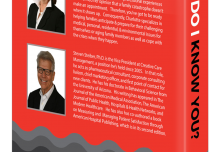 It seems that you cannot watch the evening news without getting a pitch on why older men should be paying attention to their potential for “Low T”, or low testosterone hormone levels. And a pharmaceutical company just happens to have a supplement to take care of it! This is why I have asked our Vice President, Steve Steiber, Ph.D. to talk to us about what we may not know – but should know – about “Low T” and the new treatment. Steve has over twenty years of experience as a consultant to the pharmaceutical and biologic industry prior to joining us at Creative Care Management:
It seems that you cannot watch the evening news without getting a pitch on why older men should be paying attention to their potential for “Low T”, or low testosterone hormone levels. And a pharmaceutical company just happens to have a supplement to take care of it! This is why I have asked our Vice President, Steve Steiber, Ph.D. to talk to us about what we may not know – but should know – about “Low T” and the new treatment. Steve has over twenty years of experience as a consultant to the pharmaceutical and biologic industry prior to joining us at Creative Care Management:
First, of all, it is important to understand what normal testosterone levels in men are before we can really talk about what has been described as “Low T.” Low ranges have been associated with decreased bone and muscle strength as well as lower fertility in men. But it gets a bit complicated, because the testosterone level itself is affected by obesity and by age and it ranges rather widely among men. Researchers from Harvard Medical School have recently compiled data on blood assays of testosterone levels in panels of thousands of men in eight European countries and the United States. Without getting into the specific metrics, they calculated the overall range from the normal low to the normal high end for men 19 to 39 years old. It was 264 to 916 on their scale. Adding the obese subjects lowered both of these numbers. Men ages 40 to 49 had a range of 208 to 902. What I find remarkable is that as they tracked all the way of up to ages 80 to 89, the range was 119 to 902. The upper bound was unchanged, but more men slipped lower. So that is “normal.”
How to “naturally” improve testosterone:
- Exercise regularly and add weight training
- Eat a balance of protein, fats and carbohydrates
- Supplement with vitamin D and some sun to activate it
- Add a balance of other vitamins and minerals
- Reduce stress which releases cortisol
- Sleep well.
If that older man you may know wants to consider adding the hormone, there also are some cautions. In clinical trials against placebo, older men taking the hormone had twenty percent greater build-up of non-calcium plaque in their arteries than men who did not take the hormone. In other words, the improved testosterone levels came with increased risk of a cardiovascular event. Another study looking to see if there is improved cognitive ability in men taking testosterone supplements found no improvement in men who had started with Low T and moderately impaired cognitive function. There also is a demonstrable increase (63%) in risk of venous clots in men taking a testosterone supplement. It appears that this effect is transient, only lasting for the six months following the start of treatment.
The lesson appears to be simply that anyone considering testosterone hormone supplements needs to talk with his physician…and perhaps consider the “natural aids” versus the hormonal supplement.
Charlotte Bishop is a Geriatric Care Manager and founder of Creative Care Management, certified professionals who are geriatric advocates, resources, counselors and friends to older adults and their families in metropolitan Chicago. Please email your questions to info@creativecaremanagement.com.





